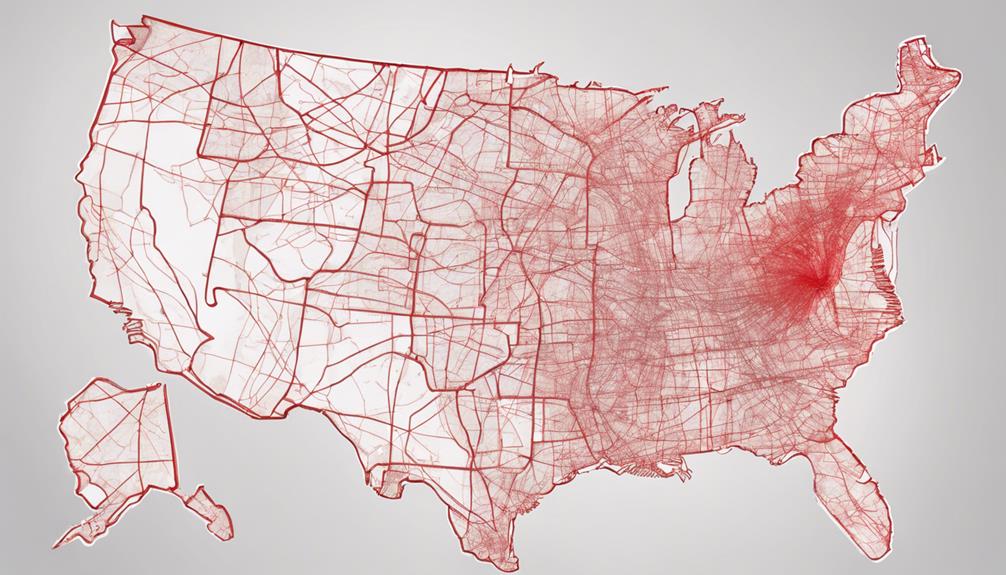A DIY divorce is safe when your marriage is uncomplicated, both spouses agree on key issues like custody, support, and property division, and you meet your state’s residency and waiting period requirements. It’s best for uncontested cases without minor children or complex assets. If you’re dealing with disputes, domestic violence, or complex financial interests, it’s wise to seek legal advice. Curious about what makes a DIY divorce work safely? Keep exploring to learn more.
Key Takeaways
- You can pursue a DIY divorce if the case is uncontested, with no minor children, and both parties agree on major issues.
- Ensure you meet your state’s residency and separation requirements before starting a DIY divorce.
- Use official court forms and online resources for straightforward cases; avoid complex issues like pensions or business assets.
- DIY divorce is safest when both spouses are cooperative, and the case involves simple property division and custody arrangements.
- Seek legal help if there are contested issues, domestic violence, uncooperative spouses, or complicated assets to ensure safety and fairness.

Are you considering a DIY divorce to save time and money? If so, it’s crucial to understand when this approach is appropriate and when it’s not. First, check your eligibility. Most states require a minimum residency period before you can file—like 91 days in Colorado or one year in Nebraska for simple divorces. Additionally, if you live in a no-fault divorce state, you won’t need to prove wrongdoing by your spouse, making self-representation easier. Some states also have specific separation period requirements; for example, Pennsylvania mandates at least one year of separation after legislation in 2016. Your situation is also simpler if you have no minor children or if you and your spouse agree on custody and support arrangements. DIY divorces are generally limited to uncontested cases where both parties agree on major issues like division of property, debts, and custody.
DIY divorce is best for uncontested cases with no minor children or complex issues.
Once you confirm your eligibility, gather the necessary court forms and documentation. Typically, you’ll start with a Petition and Summons, which are required to initiate the case. If you have children under 18, you might also need to complete additional forms like parenting plans or child custody declarations. Many jurisdictions provide online tools or interactive forms that make completing paperwork straightforward, then allow you to print and submit them at the courthouse. Be aware that some courts require you to serve divorce papers on your spouse through accepted methods like voluntary appearance or publication. To finalize the divorce, you’ll need to complete final order forms for the judge’s approval, which usually confirm the terms you’ve agreed upon. Understanding court procedures and deadlines is essential to avoid delays or dismissals. Legal issues in DIY divorce can be complex if you’re not careful. Court orders will cover division of property and debts, spousal support, child custody and visitation, child support, and even name changes. Courts also typically impose standard restraining orders that prohibit hiding assets, changing insurance beneficiaries, or moving children without permission. Accurate financial disclosure is critical for an equitable division of assets and support obligations. Proper financial disclosure is vital to ensure fairness and avoid future disputes. Any agreements between you and your spouse should be in writing and formalized through the court to be legally binding. If disagreements arise, or if your spouse refuses to cooperate, the case may need to go to trial or require legal representation.
DIY divorce works best if your case is straightforward. It’s suitable when both spouses are cooperative, with no complex assets, pensions, or business interests involved. If you’re confident in understanding and completing the paperwork correctly, and your jurisdiction offers helpful online resources, doing it yourself can save money. However, if your divorce involves complicated property, financial disputes, domestic violence, or contested custody, you should seek professional legal advice. Contested cases and uncooperative spouses often require legal expertise to protect your rights and ensure the process proceeds smoothly.
Frequently Asked Questions
Can I File for Divorce Without a Lawyer in Complex Custody Cases?
You can file for divorce without a lawyer in complex custody cases, but it’s risky. These cases involve detailed parenting plans, court evaluations, and legal requirements that can be tricky to navigate alone. Without legal help, you might overlook important details or miss deadlines, which could harm your case or your child’s best interests. It’s often smarter to consult a lawyer or mediator to make sure everything is handled properly.
What Are the Legal Risks of DIY Divorce in High-Conflict Situations?
In high-conflict situations, DIY divorce poses significant legal risks. You might misinterpret complex laws related to property division, custody, or support, leading to unfavorable outcomes. Missing deadlines, filing errors, or failing to document evidence properly can cause delays or penalties. Additionally, you risk mishandling sensitive issues like child welfare or financial disclosures, which could harm your case or even jeopardize your rights—making professional legal guidance essential.
How Can I Ensure My Divorce Agreement Is Legally Enforceable?
Think of your divorce agreement as a sealed treasure chest—its enforceability depends on the lock. To guarantee it’s legally binding, get a final decree signed by a judge, file all necessary paperwork correctly, and include clear, unambiguous terms. Keep detailed records of any violations, and be prepared to present evidence if enforcement is needed. Consulting a family law attorney can also help strengthen your agreement’s durability and enforceability.
Is It Possible to Modify a DIY Divorce Settlement Later?
Yes, you can modify a DIY divorce settlement later if there’s a significant change in circumstances, like financial or health issues or custody needs. You’ll need to file a motion with the court, providing strong evidence to back up your request. Remember, court approval is necessary, even if both parties agree. Acting promptly and consulting an attorney can help ensure your modification is approved and enforceable.
What Documents Are Required to Complete a DIY Divorce Efficiently?
Imagine you’re filing for divorce and want to do it yourself. To complete this efficiently, you need the Dissolution of Marriage Petition, a Marital Settlement Agreement, and a Financial Affidavit if required. You also must provide proof of residency, such as a Florida driver’s license, and prepare the Final Judgment form. Gathering recent income statements, bank records, and property documents helps make certain your case moves smoothly through the court.
Conclusion
Remember, a DIY divorce is like trying to cross a busy street alone—you need to know when it’s safe and when to wait for help. If your situation is straightforward, you can navigate the process with care. But if there are complications or disagreements, it’s best to step back and seek professional guidance. Don’t rush into it like a race; take your time, stay informed, and guarantee your peace of mind. Your future depends on it.










